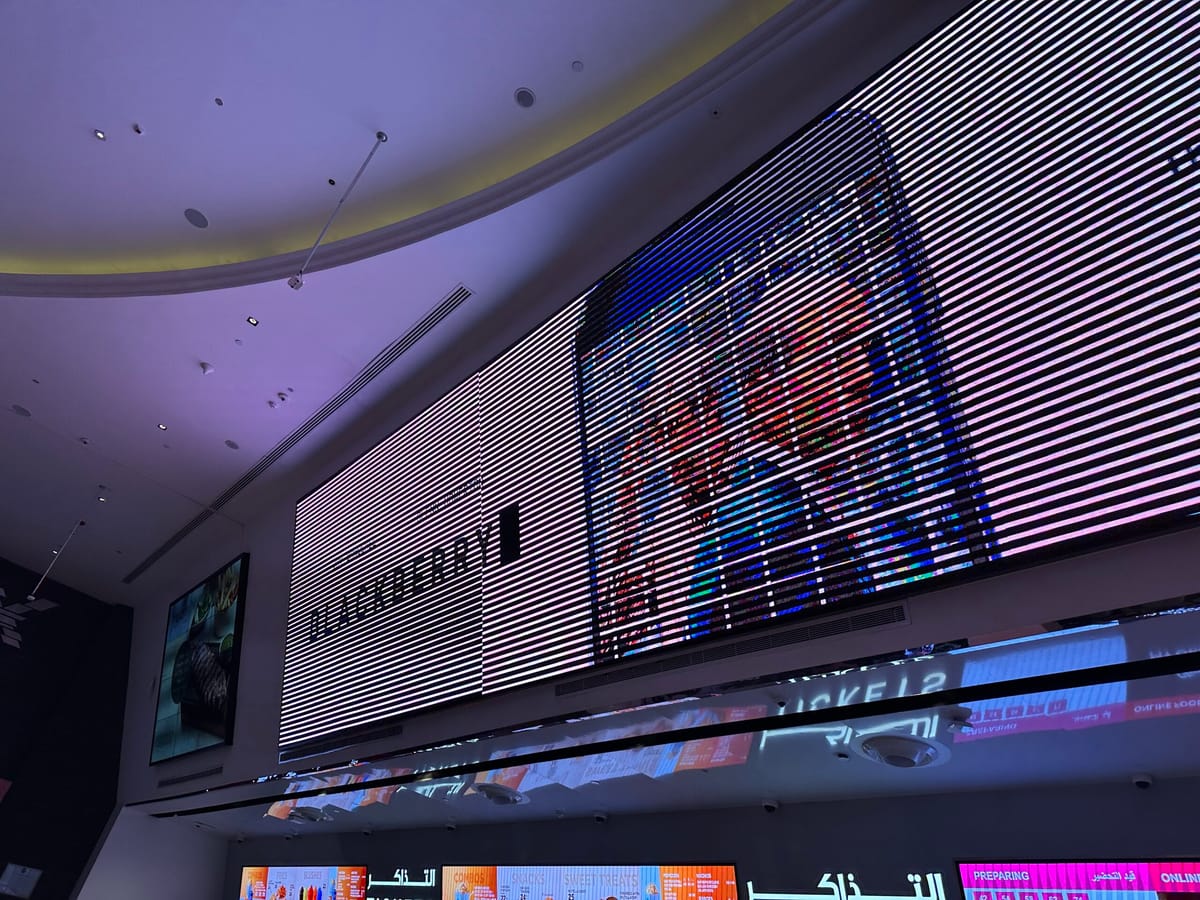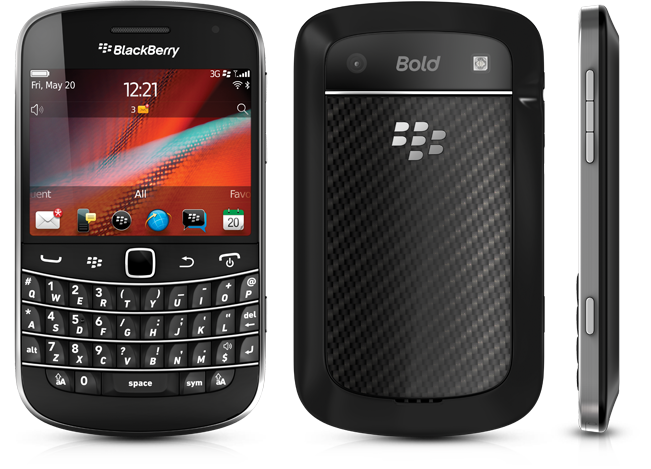The BlackBerry Movie: Worth a look, but it's heavy on fiction

I went to see the BlackBerry movie last night here in Dubai. I was astonished to find the movie theatre almost full, apart from a few seats at the front.
First, the trailer…
Ok…
I did find myself questioning why what I used to refer to as ‘normobs’ (normal mobile users, not mobile-tech-obsessed people such as myself) were flocking to the movie.
I sat on the back row, to the right – and as I waited for the movie to begin, I had to marvel at the mobile devices in use in front of me. Every second person was using their iPhone. I did see a few non-iPhones in use too. But only a few.
How many of these people were BlackBerry users, I wondered? I saw quite a few young people who couldn’t have been into their teens when BlackBerry life was upon us.
How the market moves.
And dear reader, if you’d like a first hand experience of all that, you can follow my posts across the critical years between BlackBerry’s dominance and the iPhone’s emergence. Just search ‘BlackBerry’ or ‘iPhone’ to get (probably?) hundreds of posts that I and my contributors wrote during the period.
By way of evidence, I did a search through our media library on the website for ‘BlackBerry’. Now a lot of images aren’t actually tagged properly (that’s something we didn’t really bother with in the early years) – but quite a few were. Here’s one of the press photos of the BlackBerry Bold that I embedded into the Mobile Industry Review website back in 2011:

I really did enjoy using the Bold. One of my favourite phones, ever.
So, to the movie.
I found the physical resemblance of the key characters – the Co-CEOs – a little bit off. I don’t remember Mike Lazaridis, the Co/CEO as a timid and nervous character. At all. I never met the guy directly from memory, but I was ‘in the room’ with him many, many times at various and highly memorable BlackBerry World conferences. He struck me as a towering, confident and pretty outgoing chap. Maybe in the early years?
I therefore had to suspend my disbelief right from the start.
Having lived ‘mobile conscious’ through most of the periods in the movie, I was able to smile and internally shake my head quite a few times.
“That’s not how it was,” was a frequent thought.
I was writing here on this website almost daily through most of the key stages dramatised in the movie. I recognised key turning points – most notably the iPhone 2007 announcement.
I’m not sure the movie captures just how totally embraced BlackBerry devices were by the customer base. I would have liked to have seen that emphasised a little more prior to the arrival of the ‘Jesus Phone’.
I don’t want to spoil the ‘plot’ so I won’t go into too much detail. If you’ve even half an interest in the BlackBerry phenomenon, I think it’s definitely worth going to watch it. I would, however, say this: It’s not a documentary. Even the official website uses this description:
The “true story” of the meteoric rise & catastrophic demise of the world’s first smartphone.
The speech marks are theirs.
I’m not sure it was fair to say that BlackBerry suffered a catastrophic demise.
Was it catastrophic?
Perhaps “gradually then suddenly” might be a better description. Or maybe I’m downplaying the vision and success of the introduction of the iPhone.
The other major manufacturers were operating in a different world to Apple. Apple’s customers were you and me.
BlackBerry didn’t have consumers as customers. Neither did Nokia, Motorola or almost anyone else. This is a really, really important point that’s often forgotten. These manufacturers all sold to mobile operators. Never (or very rarely) did they sell direct to the consumer.
The ‘end user’ was not the customer of the manufacturer. They were the customer of the mobile operator. This, you see quite dramatically during many sections of the movie when the Co-CEOs are trying to pitch the operators. Get a contract with Verizon and you’re winning. They take a truck load of your devices and then re-sell them to actual consumers.
Apple’s ultra direct consumer-focused approach was radically different in a multitude of areas.
There’s a scene in the BlackBerry movie where CEO Mike is pitching Verizon the new BlackBerry Bold (which, as I’ve said, was a phenomenal device) and the characters from the operator appear unsatisfied, demanding to know if BlackBerry had an “iPhone” killer planned.
It’s a little remembered fact that mobile operators often specified exactly what was bundled ‘on’ the device. Operators expected to control the apps and facilities available on the devices that they ranged. In many cases the manufacturers responded to the requests of the mobile operators, rather than the other way around.
I remember searching around trying to find a Nokia handset that had one particular feature which was unavailable in all UK supplied Nokias… because the various operators had specified that the feature should not be available in the UK.
I also remember many colleagues in the industry being staggered that AT&T (or “Cingular” as they were) wasn’t allowed to make any specific demands of Apple. How did Apple manage that, they all wondered. Normally the operator – the buyer – held all the cards when it came to device specifications and configurations.
Indeed it was always a little frustrating when you purchased a “Nokia” from, say, Vodafone in the UK and found that it had differing capabilities from the Nokia reviewed by a blogger in the States or Finland. Because Vodafone had its own demands, it’s own custom logos and app configurations and so on. Meaning that manufacturers were often shipping dozens or hundreds of different software configurations to meet operator demands.
And meaning if there was a bug or an inconsistency, it took an age for an update to be made available.
Watching the BlackBerry movie, I began to remember all of these various different stages of development that took place across the 2000-2012 years. I remember being at the conferences, press launches and interviews across those years. I remember talking to various manufacturers about the importance of apps and an app ecosystem. I remember many highly informed industry experts telling me I was wrong.
They were right. It wasn’t how things worked, until that is, Apple changed the game.
This is evidenced in a few scenes in the movie – but I think the portrayal is at times somewhat unfair. I came away from some scenes thinking that we’re meant to reckon that BlackBerry just screwed things up and that Cupertino (Apple) dominated from the start.
In the end, yes.
But there were quite a few years where seriously smart people across these manufacturers and operators did try. For a long time I was really excited to see what Apple could do to shake things up. I was hoping that we wouldn’t end up with just Apple and Android devices because I felt things would get pretty boring, pretty quickly. Just look at the range of iPhones and Androids in recent years: I literally could not be bothered to write about most of them here on Mobile Industry Review. I actually couldn’t remember whether I had a Samsung S22 or S23 Ultra recently – I genuinely couldn’t tell the difference.
I think, on reflection, I was hoping for a 4 or 5-way marketplace. I was hoping Microsoft would continue to dominate too.
The pain for many in the marketplace was all too obvious at the events I attended. I remember showing off my iPhone to many BlackBerry and Nokia purists – employees and fans alike. It was just better in so many ways. That wasn’t to say no one could compete with Apple.
Apple was a total weakling when they emerged into the mobile marketplace. Just look at the hundreds and hundreds of patents owned by the rest of the marketplace. But the way they were organised compared to the old guard… the old sell-to-the-operator model together with very fixed ways of working made it incredibly difficult for the other industry giants to respond effectively.
And once the App Store launched…
Anyway.
Watch the movie and let me know what you think.
And consider buying the book (Losing the Signal) behind it too.
Got a problem with your BlackBerry? 😉



